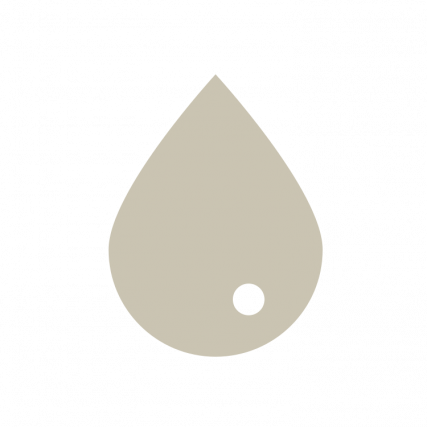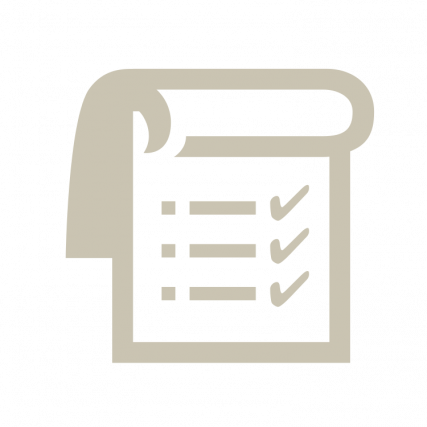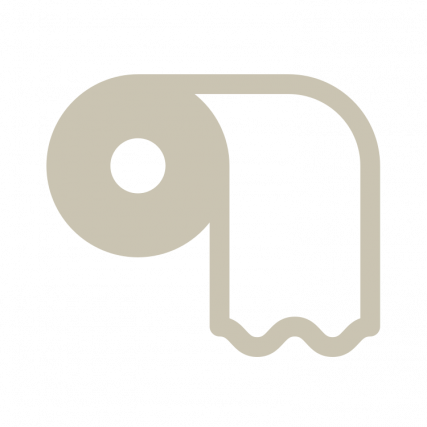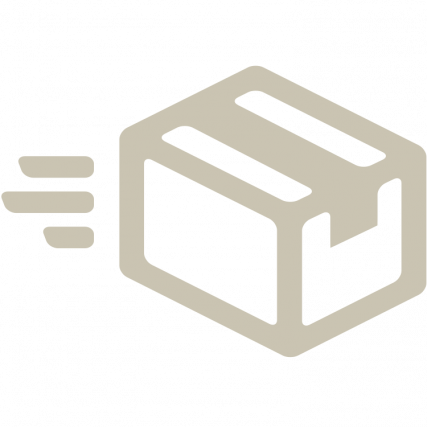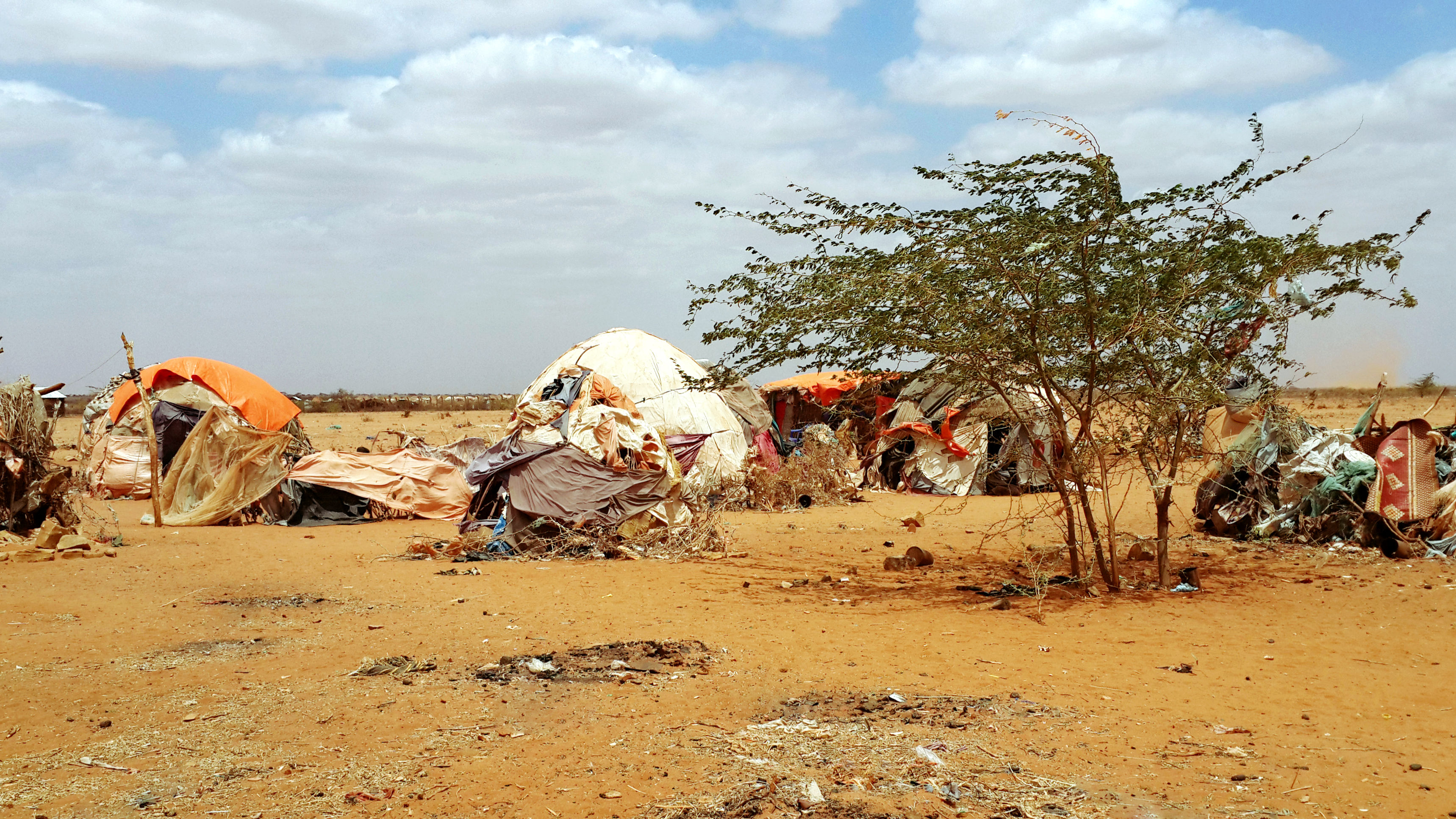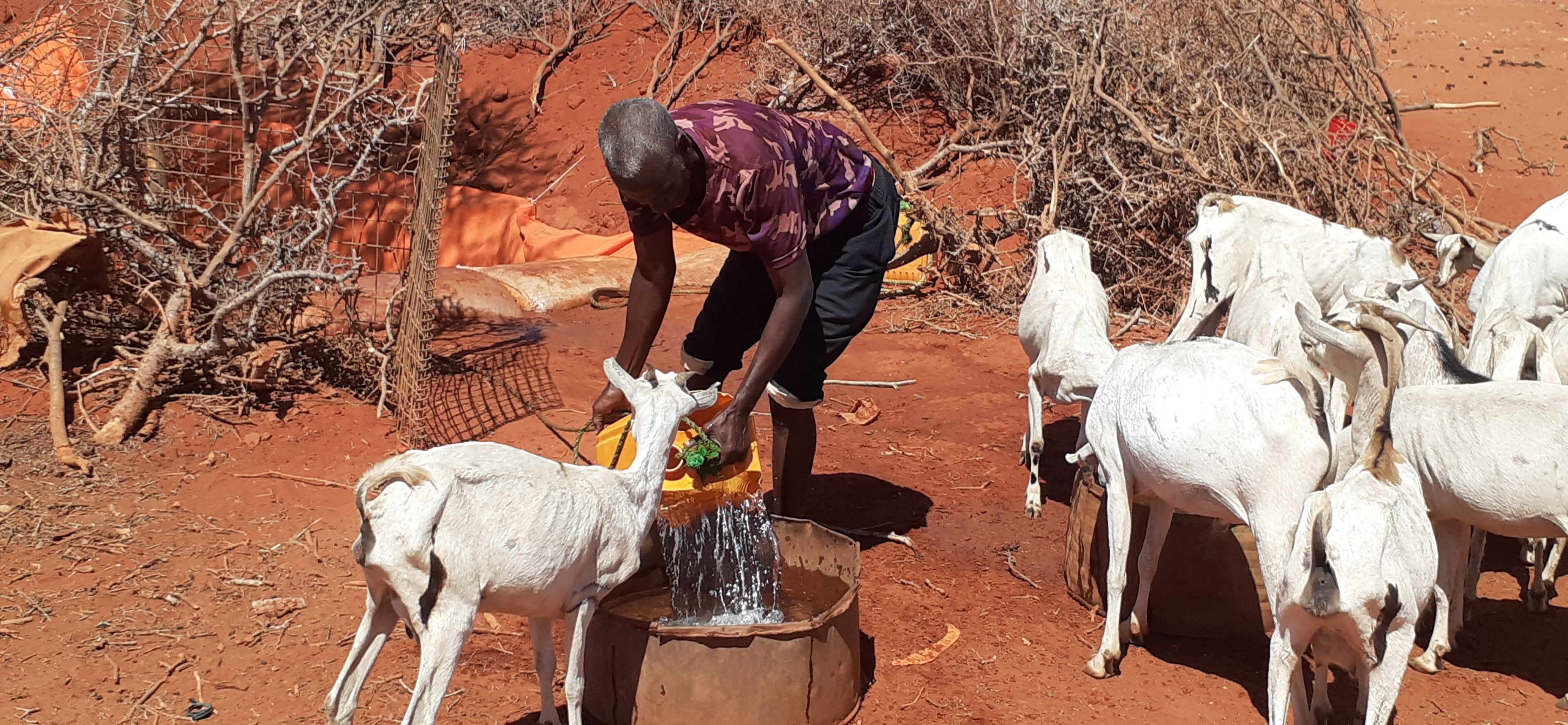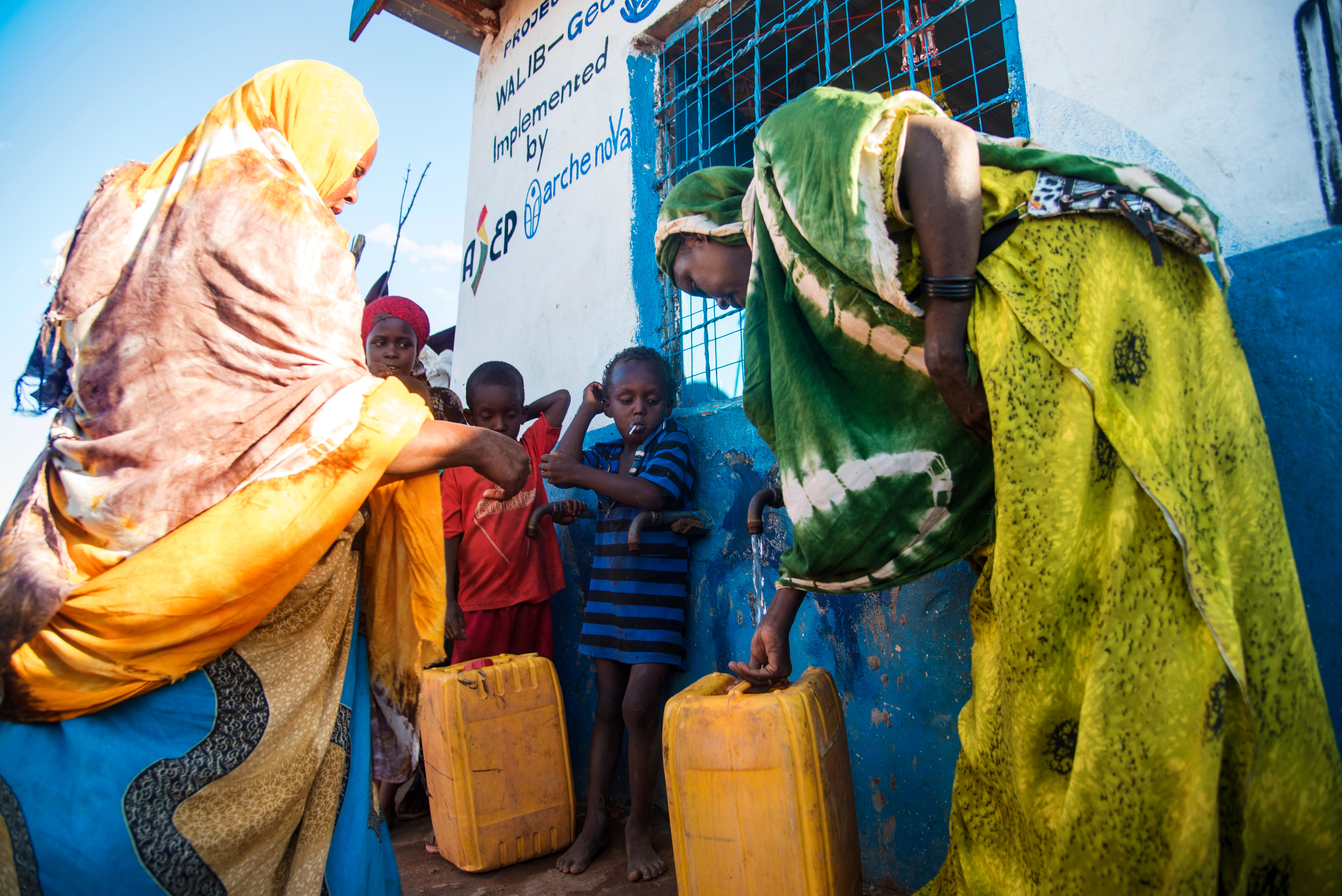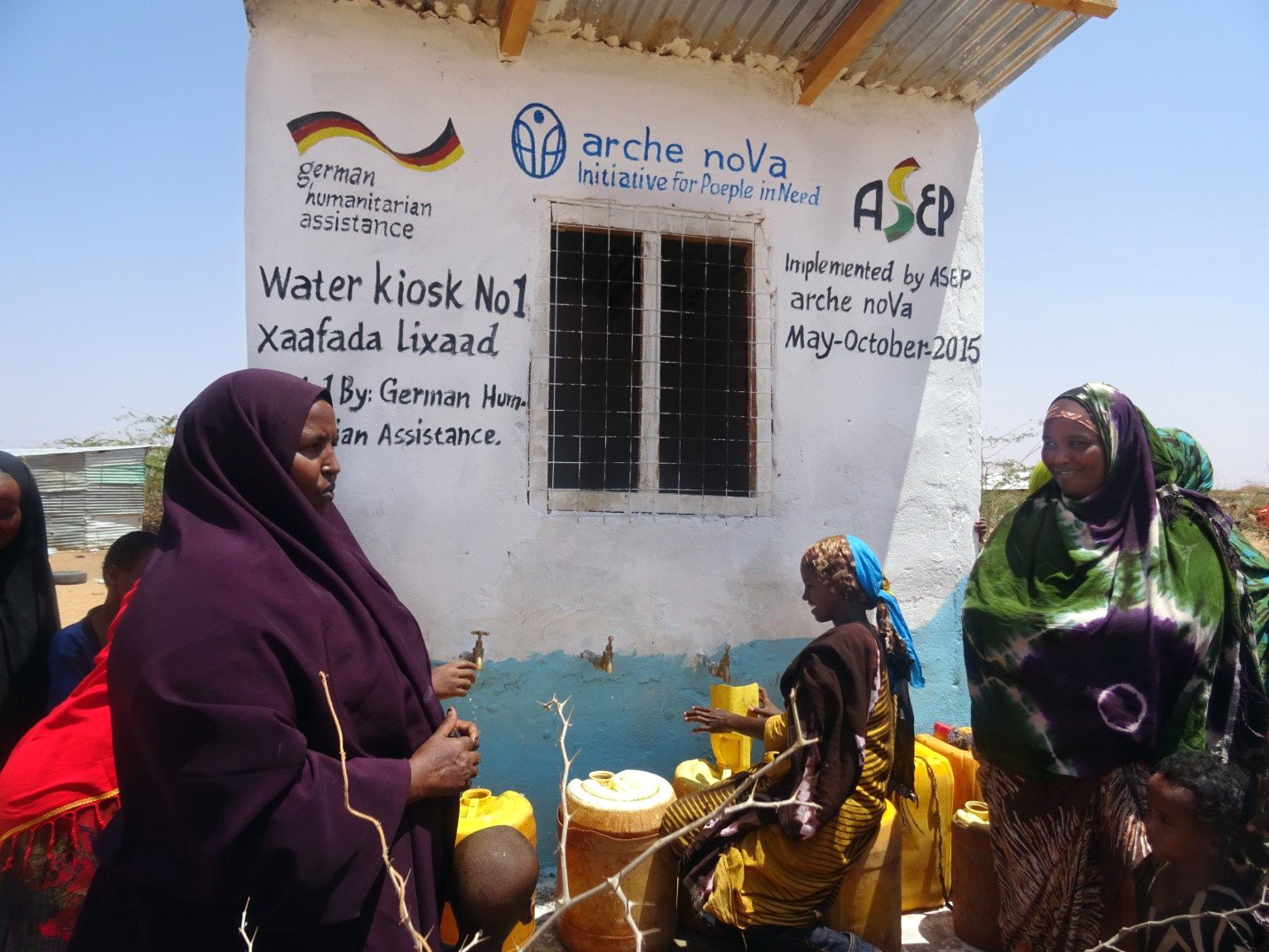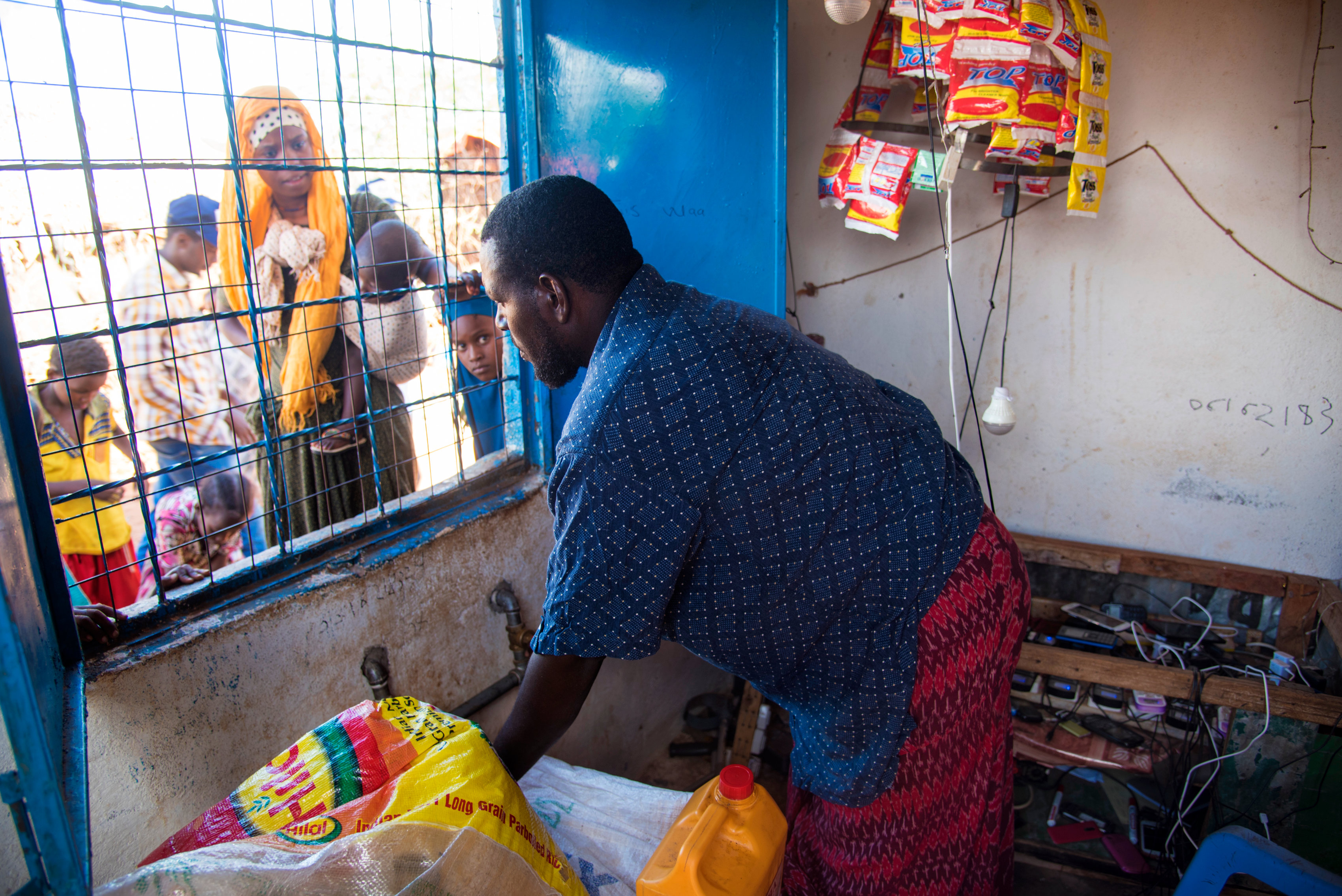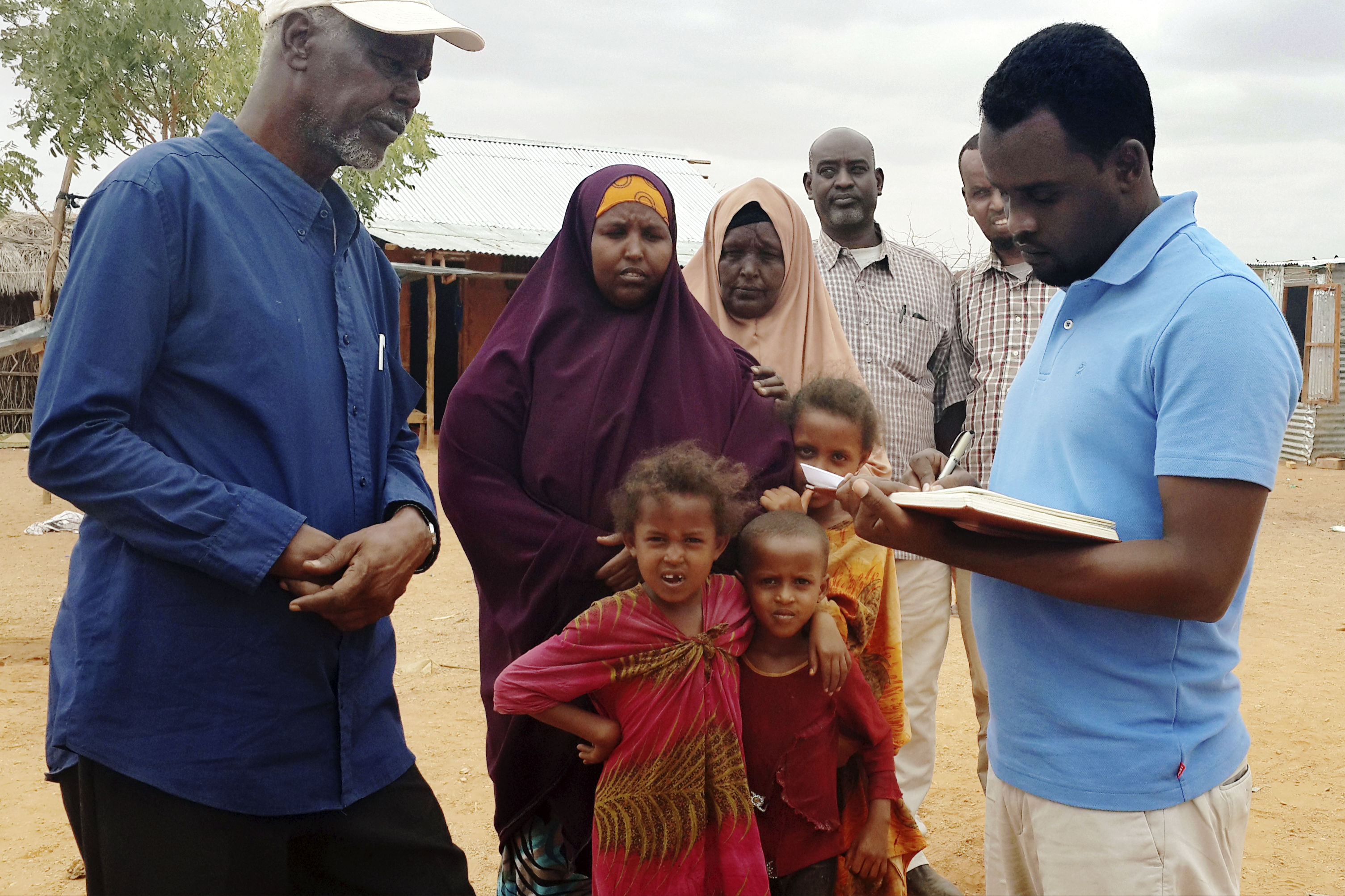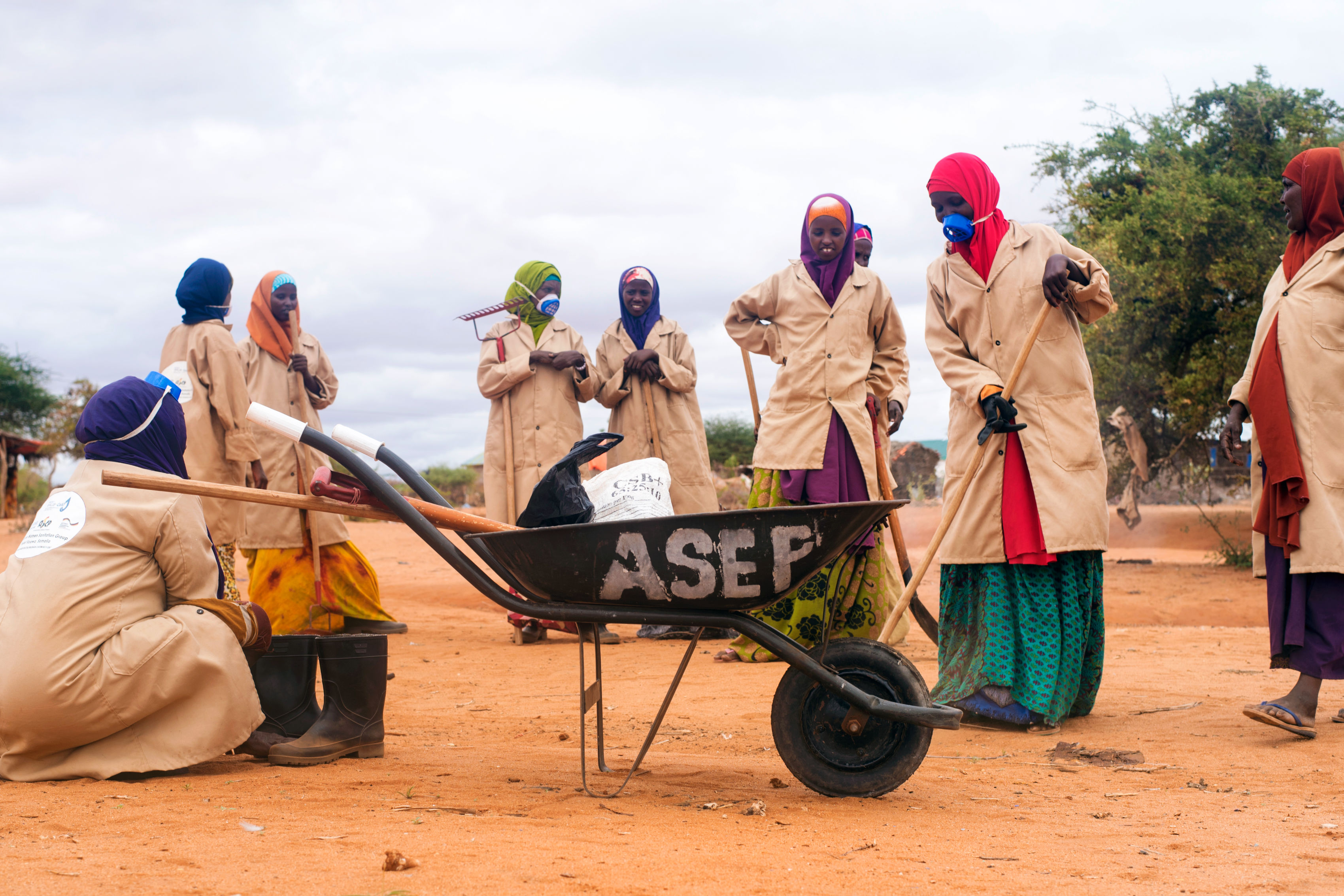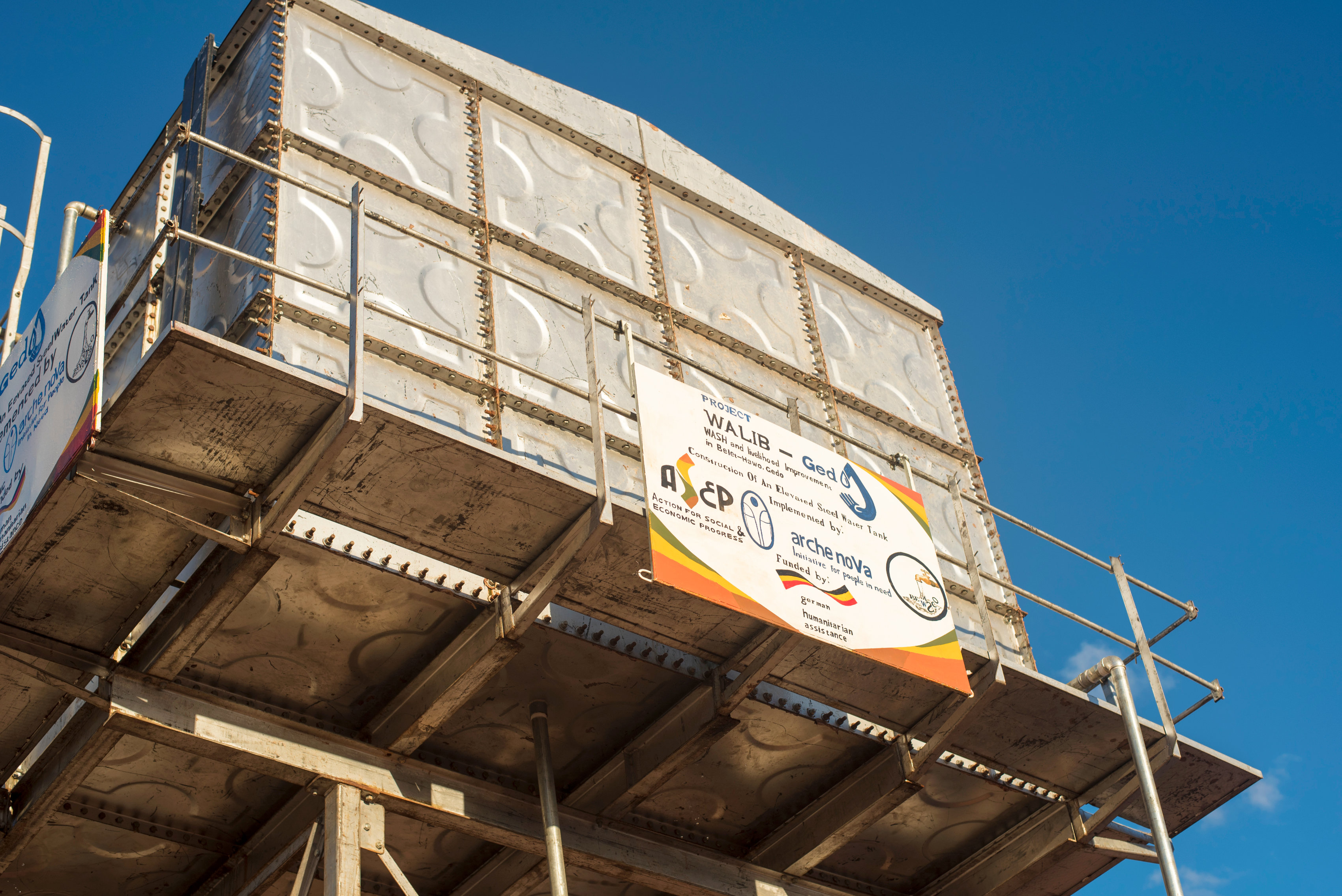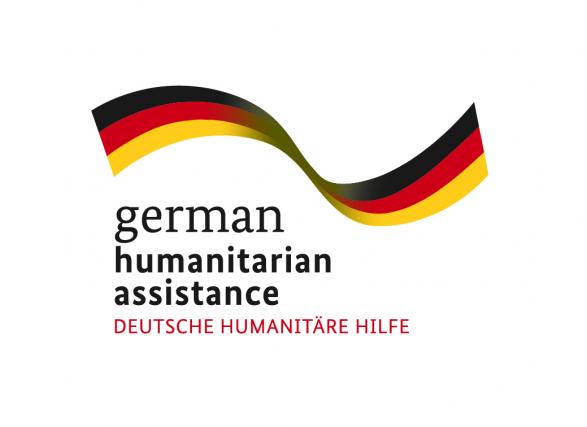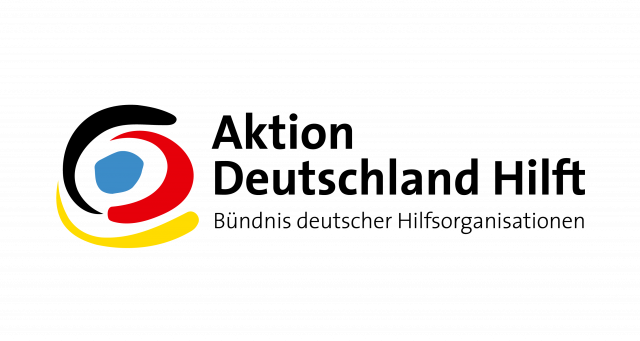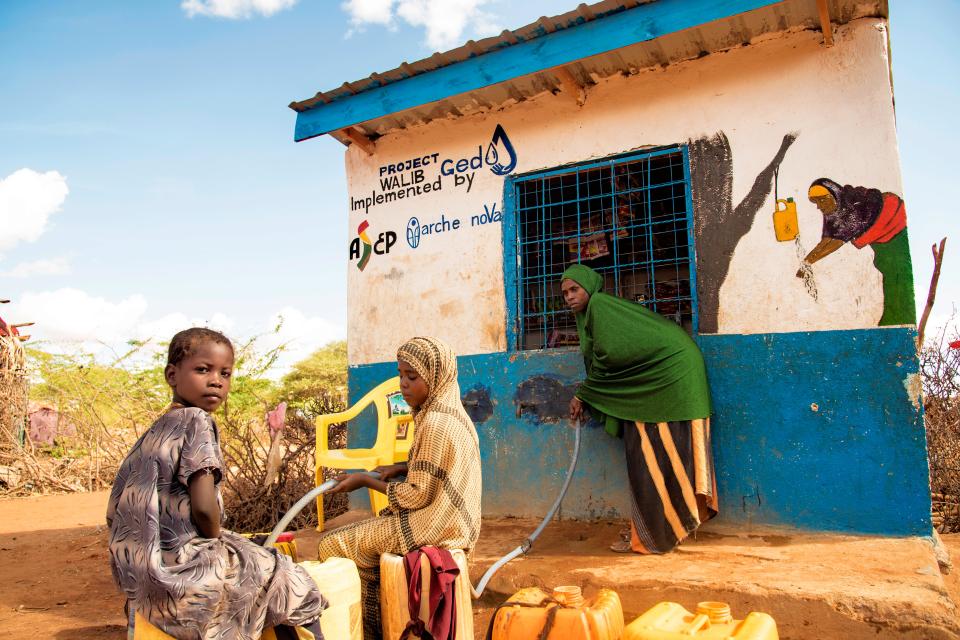
Globales Programm in 14 Ländern
Um das Ökosystem in unseren Projektregionen zu schützen, verfolgt arche noVa in Somalia den Ansatz grüner humanitärer Hilfe. Bei der Planung, Umsetzung und dem Monitoring von Hilfsmaßnahmen achten wir auf eine weitsichtige, umweltfreundliche und an den lokalen Lebensraum angepasste Vorgehensweise. Diese Aktivitäten sind Teil eines globalen Programms, das wir in Zusammenarbeit mit dem ASB, der German Toilet Organization und zahlreichen lokalen Partnern realisieren. Gemeinsam bringen wir Themen wie Inklusion, ökologische Nachhaltigkeit, Katastrophenvorsorge und internationalen Wissenstransfer in insgesamt 14 Ländern weiter voran.
Somalia is marked by violent conflicts and natural disasters. Even now, when the capital and some parts of the country are slowly stabilising, the public infrastructure is still idle. The state is not in a position to fulfil its basic supply obligations. According to the United Nations Human Response Plan for Somalia, 5.4 million people across the country are in need of help. Hundreds of thousands of Somalis are still fleeing from fears over armed conflict and drought or flooding. Most live in informal camps near existing settlements, for example in South Central Somalia. The influx of fugitives overburdens the already scarce resources in the receiving communities and cities. The urgent problems include: Drinking water scarcity, public defecation and rubbish lying around. All of these pose high health risks, especially for women, children and the elderly.
Need for assistance as a result of floods
Acute relief needs arose in April 2018, when unusually heavy rainfall led to severe flooding of the Shabelle and Juba rivers, causing enormous damage to agriculture, WASH facilities and education. Thousands of people in the Galgaduud, Gedo and Lower Juba regions have been displaced by the floods. In Belet Hawa, for example, water and sanitation supplies collapsed completely. Under these circumstances, there is a sudden increase in diseases transmitted by contaminated water, such as malaria, dengue fever and, in particular, cholera.
Support in emergency shelters and host communities
arche noVa pays special attention to securing the water supply in the overloaded camps for refugee families and in the host communities. Among other things, new water kiosks will be built. These are self-managed water distribution points in the camps. In addition, the municipal water systems in the communities are being rehabilitated. This includes the construction of rainwater storage tanks and the renewal of drilled wells and dug wells, but also the construction and repair of toilets, the distribution of hygiene kits and hygiene training, as well as waste management.
The new tank brings us a leap in quality. The next water point was four kilometres away. The tank came at exactly the right time because everyone is afraid of the next drought.
Focus on good hygiene practices and waste management
A special focus of the project is menstrual hygiene management in schools. Toilets are built to enable girls and women to wash themselves and to clean or dispose of the hygiene articles. Pupils and the school staff are educated about menstruation in hygiene training courses and materials are provided which can then be used by the so-called school health clubs and teacher community.
The general handling of the waste produced also has a major influence on the hygiene conditions in the settlements. To ensure that the waste can be disposed of properly, women are involved and trained in waste disposal committees. The groups receive working clothes and equipment such as donkey carts, brooms and rakes.
Donate for this project
Project Overview
Securing livelihoods by providing safe water, sanitation and hygiene services to communities and refugees affected by floods, droughts and conflicts in Gedo, Lower Juba and Galgaduud, Somalia.
200,000 people - IDPs in refugee camps and host communities, as well as communities in flooded areas
- Access to clean water through water infrastructure measures (rehabilitation of wells, boreholes, water reservoirs and construction of rainwater tanks)
- Establishment and training of water committees
- Construction of water kiosks as an income-generating measure
- Improvement of sanitary and hygiene conditions (e.g. distribution of WASH and NFI kits, toilet construction, hygiene education, establishment and training of women's sanitary groups for waste management)
- emergency aid for flood areas (e.g. distribution of WASH and NFI kits, reconstruction of emergency latrines, water chlorination)
Action for Social and Economic Progress (ASEP)
- Auswärtiges Amt
- private donors

